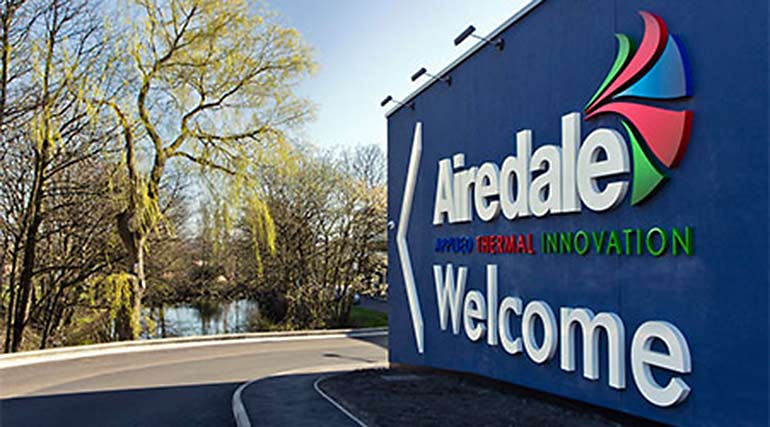Airedale slams firms flouting Ecodesign regs
4th August 2019
UK: Airedale International is preparing to lobby the UK government over the sales of air conditioning products which, it says, fail to meet the European Ecodesign directive.
In a press statement from the Leeds-based company on Friday, Airedale says it has evidence that some manufacturers are placing non-compliant products onto the UK market for their own commercial gain and the authorities are failing to act. The company maintains that the products would not perform as efficiently as is stated, and some even appear to defy the laws of thermodynamics.
The Ecodesign legislation (Directive 2009/125/EC) sets mandatory ecological requirements for energy-using and energy-related products sold in all 28 member states. Tier 1 of the specific regulation which covers many air conditioning products (including comfort and process chillers) came into law on 1 January 2018.
The onus with Ecodesign is with manufacturers, who must ensure products placed on the market meet these requirements.
However, Airedale says it has evidence that some manufacturers are placing non-compliant products onto the UK market for their own commercial gain, effectively pulling the wool over contractors’ and end-users’ eyes by delivering products that do not perform as efficiently as they state.
This is a claim which prompts Airedale to add: “With Tier 2 (January 2021) and more stringent requirements now very much on the horizon, it is clear that more needs to be done to ensure the regulations are adhered to and infringements enforced.”
The publication of Ecodesign related technical data on manufacturers’ websites is described by Airedale as “a welcome transparency” in the air conditioning marketplace. “Manufacturers now have a clear obligation to inform consumers about the efficiency of their products, which all helps contractors and specifiers to better explain product and system efficiencies to an end user.”
However, Airedale claims to have come across many examples where the correct technical data is unavailable, meaning the efficiency claims of products are impossible to verify.
“In some instances where the data has been available it has been incorrectly calculated or the product commercially re-rated, making the performance of the equipment look more favourable,” the company says.
While a lack of published technical data is considered “a concern” by Airedale, it accepts that this doesn’t necessarily mean the products themselves are non-compliant. However, Airedale claims to have come across competitor products, such as chillers, that seemingly defy the laws of thermodynamics. Based on the size of heat exchangers, compressors, etc, in these products, Airedale maintains that it would be extremely difficult for them to perform as stated.
“This is short-changing end-users who will be paying more to run these products than if they’d bought a compliant chiller and it is short-changing manufacturers like us who are trying to compete with these products on an un-level playing field.”
Enforcement
Each country within the EU has a designated Market Surveillance Authority responsible for enforcing the Ecodesign directive. Airedale says it has reported several instances of non-compliance to the Office for Product Safety and Standards (OPS&S) – the UK body responsible with the power to impose civil sanctions where infringements of the regulations occur – but have been frustrated with its response.
“The OPS&S are a small team responsible for policing a whole range of regulations across a great breadth of products, not just Ecodesign in the air conditioning sector,” Airedale explains. “They are a risk-based regulator, meaning they focus on those areas which present the greatest risk to its regulatory objectives. Often, they are unable to act on infringements of the Ecodesign regulations because of other priorities, for example, product safety. The OPS&S can intervene when the required data is not available on the manufacturer’s website, but they have no jurisdiction over foreign manufacturers. With the UK being served by many overseas-based manufacturers, it is a common problem. In these cases, all the OPS&S can do is refer the issue to their overseas counterparts.”
With air conditioning understandably in the environmental spotlight, Airedale says that all manufacturers should be committed to reducing the energy consumption of their products.
“What we need now is a level playing field, allowing the manufacturers who do display a proactive stance to the Ecodesign regulations to still be able to compete commercially. This requires not just the OPS&S, but the whole supply chain from end-users down to contractors, to be aware of the regulations and their responsibilities and ensure that as an industry we respect both the regulations that govern us and the planet we live on.”
Airedale says it intends to lobby central government to act on this issue and ensure the OPS&S is fit for purpose in dealing with infringements. It is also offering a free testing service, allowing suspected non-compliant competitor equipment to be witness-tested independently in its laboratories in Leeds, to verify the efficiency claims.







